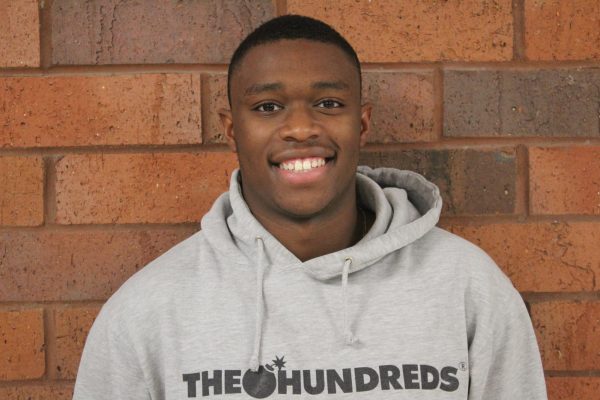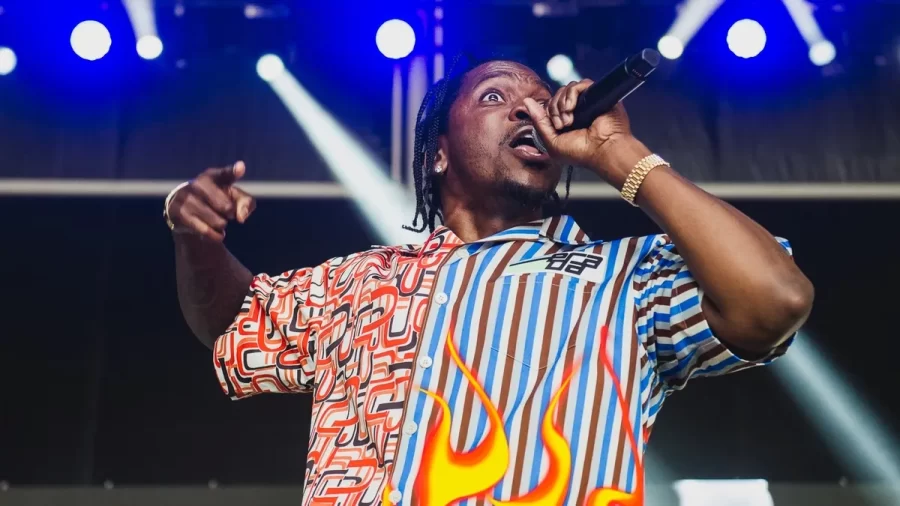Is It okay to rap about selling drugs?
Pusha T and the implications of rapping about drug dealing
A couple weeks ago I went to see a rapper named Terrence Thornton better known by his stage name, Pusha T. It was the first concert I’d ever gone to, and overall it was a great experience.
He performed one of my favorite songs of his, “Come Back Baby.” The song contains lyrics and a subject matter that summarize just about everything Thornton has rapped about his whole career — drugs, specifically his alleged past as a cocaine dealer.
In the song, you can see just about everything people love and hate about the brand of Hip-Hop that has inspired the term “coke-rap”.
It starts off with an instrumental of a pastor in a drug-ravaged community pleading to his congregants to leave the dope alone before cutting to Thornton as he spends over three minutes boasting about the amount of dope he has supposedly sold.
He does so with cutting lines and searing double entendres, never seeming apologetic for the lives he likely had a hand in ruining if there is any truth to the stories he tells.
This brutally honest recanting of his past life, combined with his expert lyricism is a recipe — of the non-illicit variety — Thornton has been cooking up since his days as a part of the rap duo Clipse in the early 2000s.
His success could make one wonder about the moral implications Thornton and artists like him face by making money talking about their less than moral past actions.
It’s a complex topic with many aspects, one of them being:
Think about the children
Ahh the question being raised by helicopter parents everywhere. It comes in several forms. “Is ‘Call of Duty’ creating mini serial killers?” “Is it ok that my child watched a rated-R movie?” “Is rap music gonna turn my kid into a criminal?”
My answer to all of these is that it often depends on the parent. Concerning the music side, the industry did their part when they added parental advisory labels to records back in the 1990s.
Although the development of technology has made it increasingly difficult to do so, it is on parents to control what media their child consumes. It’s also on the parent to have difficult conversations with their kids about the real-world topics being discussed in these songs.
This leads to the next point:
Pusha T really did sell a lot of drugs, allegedly.
For an artist in a genre that is filled with stunting and posturing, Thornton doesn’t seem to be outright fabricating his past as a drug dealer.
His metaphors comparing the exact amount of cocaine he sold to literal snowfall are a chuckle-inducing exaggeration to be sure, but there are news clips and real-world legal cases which strongly suggest his involvement in the Virginia drug trafficking world, without outright incriminating him.
Why is this important? Because it shows that Thornton and artists like him are speaking of real-world lived experiences. While qualms may be raised surrounding the ethics of his actions, it would be unfair to suggest he is lying. And if he was, so what? Art is art, right?
Art is art, right?
Don’t get me wrong, I know the likes of Quentin Tarantino and Martin Scorsese have caught plenty of flack for the gratuitous violence and drug use in their movies, but it seems that the criticism of rap music — regarding similar subjects — is a bit heightened.
Now this could be for reasons concerning race — a can of worms we’ll leave shut for now — and it could also have to do with the relatively young age of the genre, having only really started in the late 1980s.
Either way you look at it, people tend to have a shorter fuse for Hip-Hop, and a longer one may allow them to understand and appreciate it more as an art form.
My bias — if not already clear — is definitely about to take over, but I view rap music as poetry. It’s poetry that’s often crime-related, but it’s poetry nonetheless.
There is an art in being able to put words together in a way that pleases the ear while telling people from completely different walks of life your own life story. It’s honest and compelling in a way that not many art forms are.
Ok, I’ll hop off my soapbox, now for the conclusion.
It’s not up to me.
This is the part where I shrug my shoulders and cover my rear end by saying things like, “This is just what I think,” and “Everyone is entitled to their own opinion,” and in reality both of those things are true. I don’t know anymore than the next guy.
I grew up in a quiet suburb of St. Paul, Minnesota, raised by hardworking, immigrant parents who would likely have a heart attack if they heard any of the cocaine-laced lyrics saturating Thornton’s discography.
I only mention this to illustrate how little I relate to Thornton’s infectious rhymes about getting rich by transporting kilos of illicit substances. I have no reason to defend Thornton’s past actions, nor is that my intention.
I’m speaking purely as a fan of music, and if this particular type of music is not your cup of tea, that’s okay. I do, however, think you’d be missing out on a great artistic experience.
Obadiya can be reached at [email protected]

Oludare is a fourth-year journalism student and this is his fifth semester on The Spectator. He likes watching basketball and is pretty mediocre at it, but that doesn't stop him from playing it. He has a small but growing record collection and believes Woody Harrelson is a style icon and national treasure — fact not opinion.

